Coronavirus: Cheap steroid reduces deaths by up to 35 per cent, airlines ban alcohol in virus fight
After more than three weeks without a new case of COVID-19, an “unacceptable failure” has put New Zealanders at risk again. It comes as researchers discovered a $10 steroid can improve survival in virus patients.
Coronavirus
Don't miss out on the headlines from Coronavirus. Followed categories will be added to My News.
New Zealand Prime Minister Jacinda Ardern has assigned a top military leader to oversee the nation’s border quarantine measures after what she described as an “unacceptable failure” by health officials in allowing two women who had recently returned from London to leave quarantine before they had been tested for the virus.
The women, who are New Zealand citizens, had flown home to visit a dying parent and were granted an exemption to leave their mandatory 14-day quarantine early on compassionate grounds.
They then travelled by car from Auckland to Wellington, where they tested positive for the virus. Health officials said the women had no contact with other people on their road trip. However, officials said they are contacting 320 people who may have come into contact with the women on their flight or in the hotel they stayed at during their time in quarantine.
Before the two new cases were announced on Tuesday, New Zealand had gone more than three weeks without reporting any new cases and was considered virus-free.
Ms Ardern has advocated tough border measures to prevent another outbreak and has cancelled quarantine exemptions on compassionate grounds while the case is investigated further.
She said she had appointed Air Commodore Digby Webb, the assistant chief of defence, to oversee all quarantine and managed isolation facilities
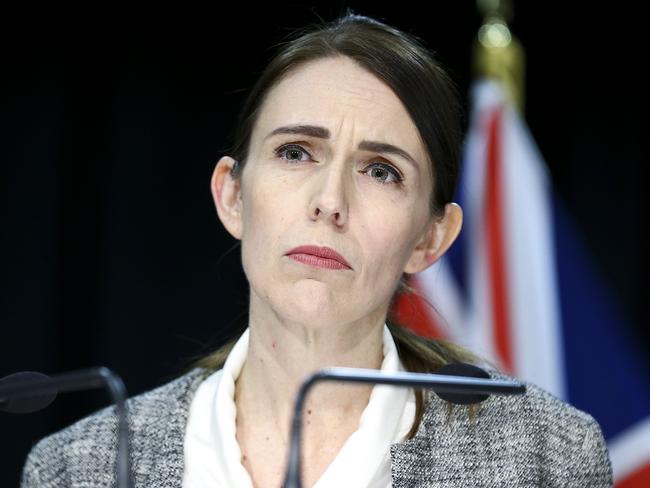
TEN DOLLAR STEROID REDUCING DEATHS
Researchers in England have discovered a $10 steroid that can improve COVID-19 survival.
A cheap, widely available steroid called dexamethasone reduced deaths by up to one third in severely ill hospitalised patients.
The drug can be bought in a packet of 30 tablets at Chemist Warehouse.
The results of an Oxford University trial of more than 2000 patients were announced Tuesday and would be published soon, researchers said.
The study randomly assigned 2,104 patients to take the drug and compared them with 4,321 patients receiving only usual care. The drug was given either orally or through an IV.
After 28 days, it had reduced deaths by 35 per cent in patients who needed treatment with breathing machines and by 20 per cent in those only needing supplemental oxygen.
It did not appear to help less ill patients.
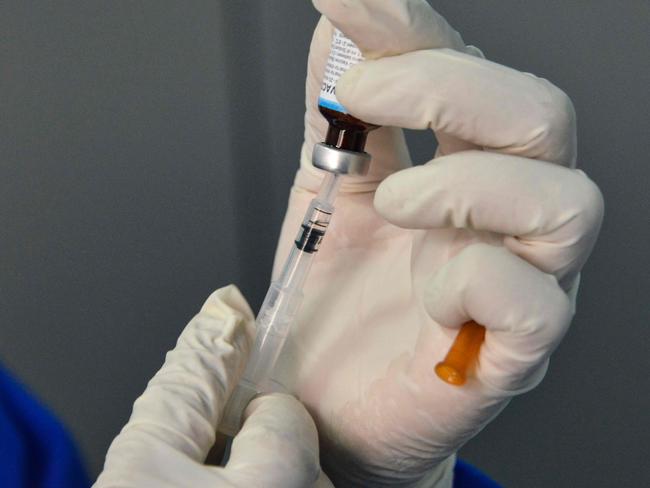
“This is an extremely welcome result,” one study leader, Peter Horby of the University of Oxford, said in a statement.
“The survival benefit is clear and large in those patients who are sick enough to require oxygen treatment, so dexamethasone should now become standard of care in these patients. Dexamethasone is inexpensive, on the shelf, and can be used immediately to save lives worldwide.”
Even though the drug only helps in severe cases, “countless lives will be saved globally,” said Nick Cammack of Welcome, a British charity that supports science research.
“Dexamethasone must now be rolled out and accessed by thousands of critically ill patients around the world,” said Cammack, who had no role in the study.
“It is highly affordable, easy to make, can be scaled up quickly and only needs a small dosage.”
Steroid drugs reduce inflammation, which sometimes develops in COVID-19 patients as the immune system overreacts to fight the infection.
This over-reaction can prove fatal, so doctors have been testing steroids and other anti-inflammatory drugs in such patients.
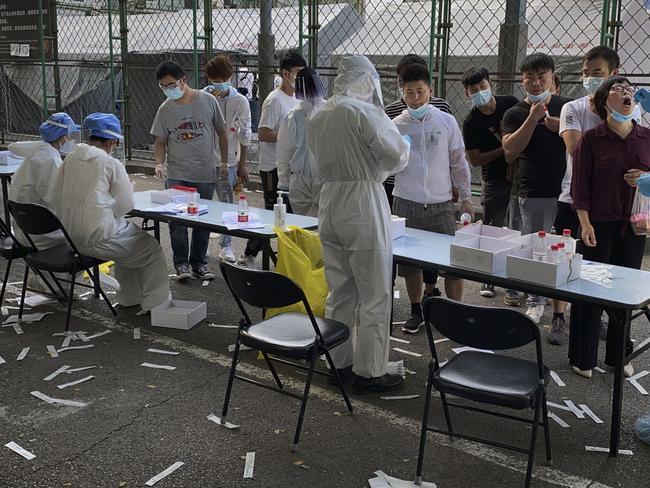
The World Health Organization advises against using steroids earlier in the course of illness because they can slow the time until patients clear the virus.
Researchers estimated that the drug would prevent one death for every eight patients treated while on breathing machines and one for every 25 patients on extra oxygen alone.
This is the same study that earlier this month showed the malaria drug hydroxychloroquine was not working against the coronavirus.
The study enrolled more than 11,000 patients in England, Scotland, Wales and Northern Ireland who were given either standard of care or that plus one of several treatments: dexamethasone; the HIV combo drug lopinavir-ritonavir, the antibiotic azithromycin; the anti-inflammatory drug tocilizumab; or plasma from people who have recovered from COVID-19 that contains antibodies to fight the virus.
Research is continuing on the other treatments. The research is funded by government health agencies in the United Kingdom and private donors including the Bill and Melinda Gates Foundation.
GROG OFF MENU WHEN FLIGHTS RESTART
While most of us have been drowning our sorrows in lockdown, our return to air travel will likely be a more sobering experience this time around as airlines prepare to cut serving alcohol.
The move has reportedly been made to minimise any interaction between crew and passengers and to ensure a safer flight for all on board.
In Australia, Virgin Australia will suspend all alcoholic drinks, serving guests complimentary water and a snack, but additional food and drinks aren’t currently available for on-board purchase.

In Europe, British Airways, Easyjet and KLM have stopped serving alcohol for the time being, while in hard-hit America, Delta Air Lines and American Airlines have also stopped serving alcoholic beverages, according to a CNN report.
Indeed, many airlines are limiting drink options to water only. As face masks must be kept on other than when passengers are eating and drinking, it’s reportedly a way of making sure passengers are holding onto their refreshments for no longer than they need to.
With face masks already mandatory on most flights around the world, and new legislation introduced in January 2020 to help stop anti-social behaviour on flights, getting high in the sky will be more of a pipe dream.
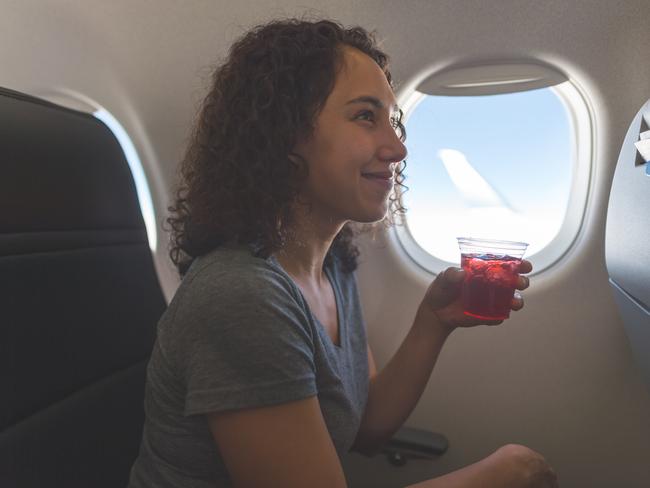
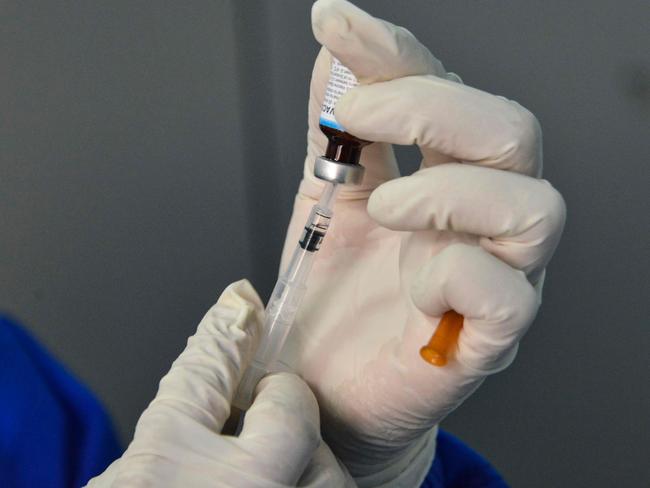
BEIJING TRAVEL RESTRICTED OVER ‘EXTREMELY SEVERE’ OUTBREAK
Beijing on Tuesday urged its residents to not leave the city and closed schools again as authorities scramble to contain a “severe” new coronavirus outbreak in the city of 21 million people.
The coronavirus resurgence — believed to have started in the capital’s sprawling Xinfadi wholesale food market — has prompted alarm as China had largely brought its outbreak under control through mass testing and draconian lockdowns.
The country had eased much of its anti-coronavirus measures in recent months as the government all but declared victory against the disease that emerged in the central city of Wuhan late last year.
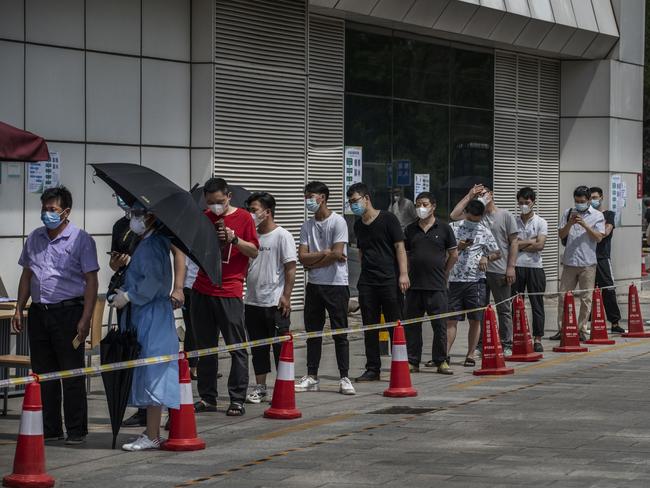
Fearing that progress could unravel, authorities locked down several residential areas and announced new restrictions on Tuesday (local time), with group sports banned, people ordered to wear masks in crowded enclosed spaces, and inter-provincial group tours suspended.
The city government said residents should avoid “non-essential travel” out of the capital.
“Anyone leaving Beijing must have a negative reading on a nucleic acid test taken within seven days (prior to departure),” Chen Bei, deputy secretary-general of Beijing municipal government, said at a press conference.
Residents of “medium- or high-risk” areas of infection are completely banned from leaving.
Non-residents and outside vehicles are prohibited from entering communities and villages in medium and high risk areas, Chen said.
He added that the higher risk residential areas are “fully enclosed and controlled” — similar to strict local measures imposed in Wuhan at the height of the pandemic.
The local education commission announced that all schools, which had mostly reopened, would close again and return to online classes. Universities were told to suspend the return of students.
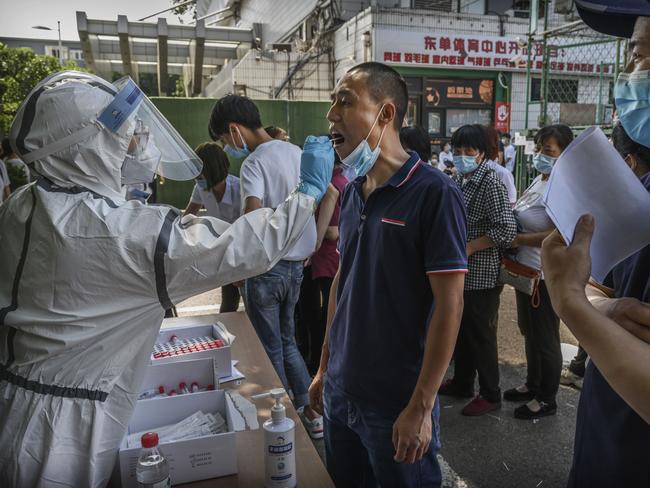
“The epidemic situation in the capital is extremely severe,” Beijing city spokesman Xu Hejian warned at a press conference.
Another 27 cases were reported on Tuesday.
They took the number of confirmed infections in Beijing over the past five days to 106, as authorities locked down almost 30 communities in the city and tested tens of thousands of people.
Officials in the city said they would test stall owners and managers at all of its food markets, restaurants and government canteens.
Beijing’s testing capacity has been expanded to 90,000 a day, according to state news agency Xinhua.
Retiree Wu Yaling, 57, was in a long queue of masked people waiting in the scorching heat for tests at a park opposite one city-centre hospital.
“I try not to go out as much as possible,” she said, adding that her home is near one of the closed markets.
On Tuesday, the capital’s transport commission banned taxi- and ride-hailing services from carrying passengers out of the city, Xinhua said.
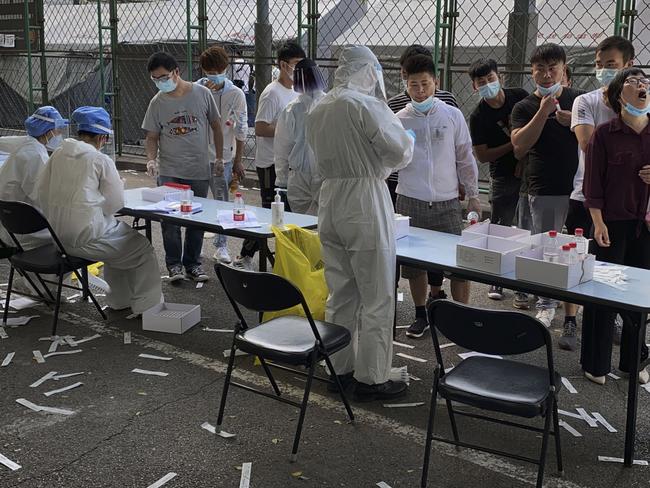
Companies were told to encourage flexible work arrangements such as teleworking, while libraries, museums, art galleries and parks must now limit capacity to 30 per cent.
All indoor sports and entertainment venues in Beijing were ordered to shut on Monday, while some other cities across China warned they would quarantine arrivals from the capital.
Authorities also reported four new domestic infections in neighbouring Hebei province, while a case reported in Sichuan province was linked to the Beijing cluster.
Officials were racing to track people from Beijing who had travelled to other parts of China, and encouraging those who visited the capital to get tested.
MARKET INSPECTIONS
Beijing officials closed 11 markets and disinfected 276 agricultural markets and 33,000 food and beverage businesses.
Seven more residential estates were also locked down on Tuesday. “Beijing’s outbreak will probably be controlled quite quickly,” said Wu Hulin, a 23-year-old tech worker in Xicheng district who got tested.
“I think (China) is doing a better job compared to overseas.” Officials had warned that, since May 30, 200,000 people had visited Xinfadi market, which supplies more than 70 per cent of Beijing’s fruit and vegetables.
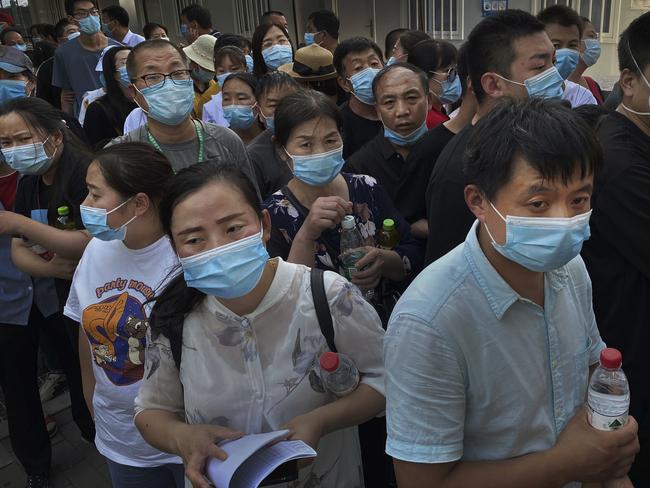
More than 8,000 workers there had been tested and sent for quarantine. Until the new outbreak, most of China’s recent cases were nationals returning as COVID-19 spread globally.
China’s Center for Disease Control and Prevention said Monday the virus type found in the Beijing outbreak was a “major epidemic strain” in Europe.
Wu Zunyou, the body’s chief epidemiologist, told state broadcaster CCTV the outbreak “most likely” originated from outside China or other parts of the country.
PM CONFIRMS PLAN FOR UNI STUDENTS’ RETURN
NSW is unlikely to be the first state to benefit from the return of international university students with South Australia and the ACT well ahead in their plan to welcome a pilot cohort.
Prime Minister Scott Morrison told a Coalition party room meeting on Tuesday he had already received proposals to trial bringing international students to SA and Canberra, and was aware NSW and Victoria were considering options.
International students bring in more than $2 billion to NSW alone, with universities anxious to have them return by the start of semester two this year, however the state is not as progressed in its prospal as others.
Mr Morrison told his colleagues there were a number of practical issues to work through before Australia’s international borders could be reopened to students.
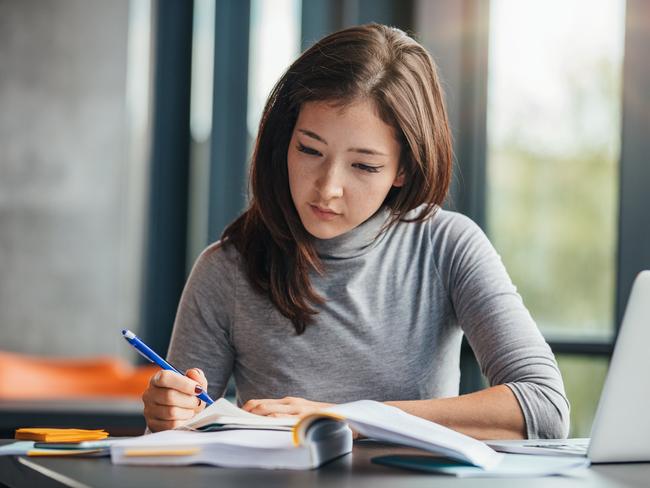
The Australian Border Force is likely to have to consider how to let students from lower risk countries such as New Zealand, where COVID-19 has been suppressed, through airports without being stuck in arrivals queues at the same time as students from higher risk countries.
The federal government has maintained the taxpayer will not foot bill for mandatory two-week quarantining of returning international students.
During the Coalition meeting a question was also raised about the possibility of creating further exemptions for people holding temporary visas in Australia to return.
In the early stages of the COVID-19 pandemic, many temporary visa holders were encouraged to return home as they would not qualify for government assistance if unemployed or furloughed during the shutdown.
But as restrictions have eased, members of the government are now keen to have families reunited and temporary visa holders with jobs to return to, be allowed into the country.
AUSSIE PAY CUT WARNING AS EUROPE REOPENS BORDERS
Workers won’t stand for permanent pay cuts as the Australian economy recovers from the coronavirus, the nation’s top union boss says.
ACTU (Australian Council of Trade Unions) secretary Sally McManus was set to tell an economic forum in Canberra today permanent cuts to workers’ rights and pay is dangerous and will damage confidence, hindering recovery efforts.
“We will not have the legacy of this pandemic reverberate onto the next generation. Young people are already hardest hit, along with women and we cannot pass watered-down rights to the next generation,” she will say.
“You can’t cut your way to recovery. Australian workers know this.
“We are keen to partner with anyone who understands that the only way to build a stronger economy is also about making it a fairer economy.”
The CEDA (Committee for Economic Development Australia) event will focus on job security, wage growth, workplace safety and local manufacturing.
Finance Minister Mathias Cormann said ensuring businesses invest in Australia is key to helping the economy.
The government is looking at tax incentives, deregulation, better access to export markets and flexible workplace arrangements.
“We’ve got to find ways to give business the confidence to invest and to hire more Australians again,” Senator Cormann told Seven’s Sunrise.
“We’ve got to make it easier for business to be successful and profitable into the future so they can hire more Australians.”
